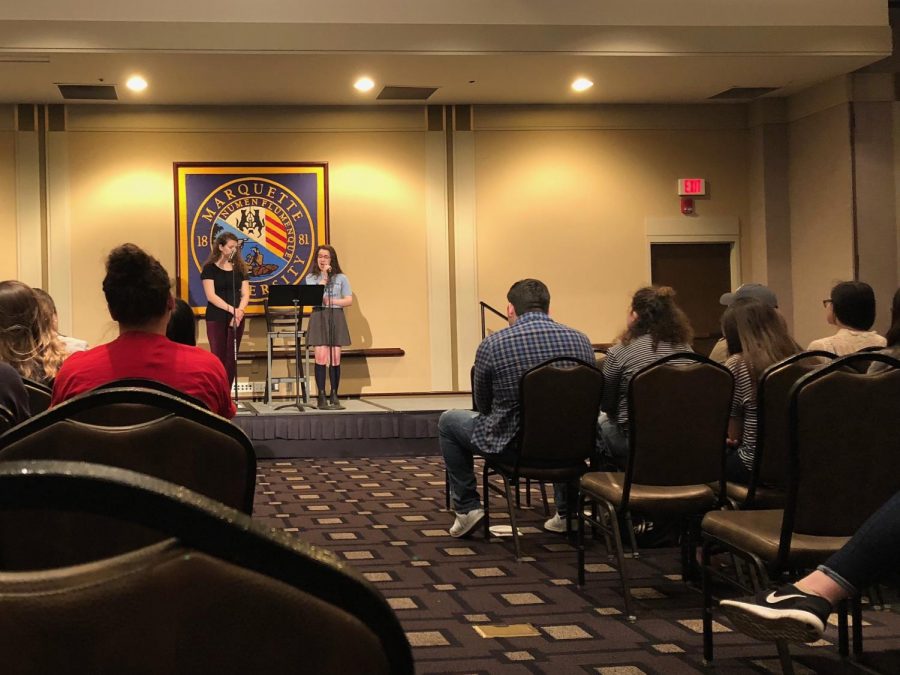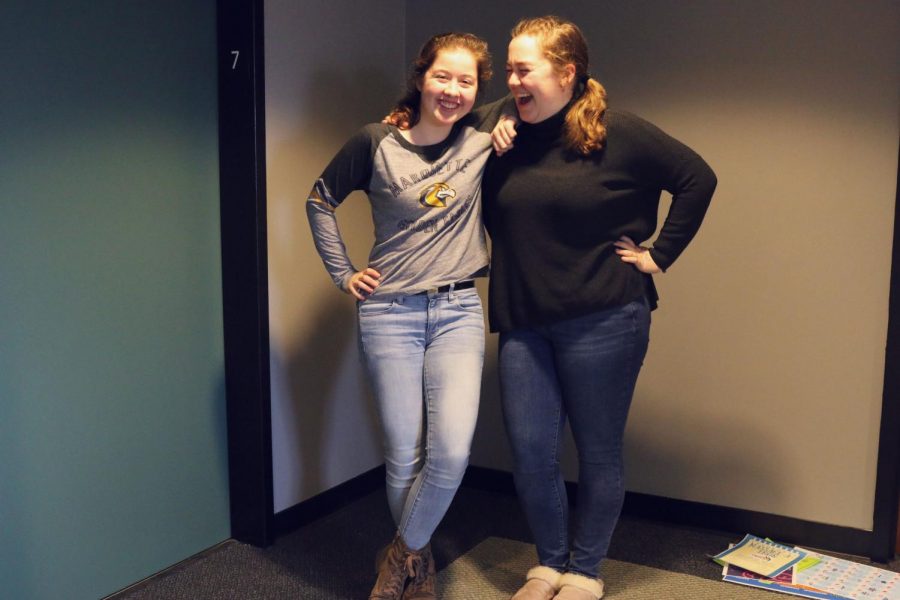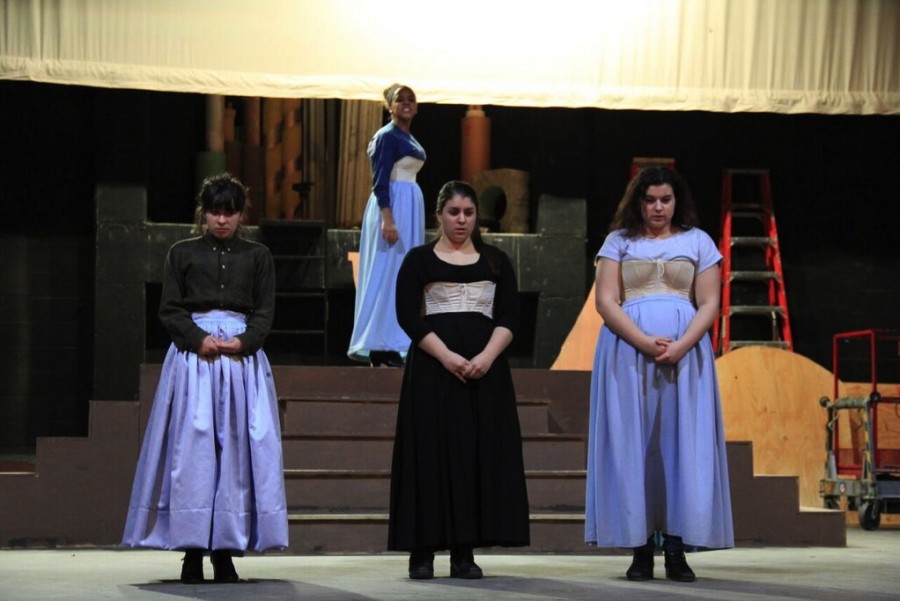The event Stanford/Marquette was hosted by a student in Alumni Memorial Union Ballroom E April 30 in coordination with Sexual Assault Awareness Month.
It consisted of readings from the Stanford rape victim’s letter to Brock Turner, from which the event was named. Additionally, it featured actress Ashley Judd’s speech on the #MeToo movement and several statements from Marquette community members about their experiences with sexual assault. Donations were also collected for the UMOS Latina Resource Center based in Milwaukee, which provides services for victims of sexual assault and domestic violence.
Although the event was sponsored by campus groups such as the Department of Social Cultural Sciences and Advocacy Services, the event was hosted by Jessica Szuminski, a senior in the College of Arts & Sciences.
Szuminski held the event with Madeleine Farley, a Marquette alumna from the College of Communication who graduated in 2017. The two had the idea for the event after reading Emily Doe’s letter to her rapist, Brock Turner, in 2016.
“(The letter) needs to be read out loud. People need to hear this again and again,” Farley said. “These aren’t just words to be read on a page.”
Farley and Szuminski’s desire to hold the event was furthered by their personal experiences with sexual assault while attending Marquette.
“I graduated with a women’s and gender studies degree. I was continually the person who talked to my friends about healthy sexual relationships, and I was still sexually assaulted. It literally could happen to anyone at any time,” Farley said.
Katy Adler, a coordinator for advocacy services and sexual violence prevention, said it’s important to host events like Stanford/Marquette to allow sexual assault victims to hear each other’s stories.
“Sexual assault thrives in secrecy, so events like this are bringing these issues to the forefront,” she said. “Events like this are giving us an opportunity to come together as a community and show support for one another and bring forward a lot of those stories that we don’t hear very often.”
While Farley and Szuminski agreed that sexual assault awareness is an important aspect in reducing sexual violence on campus, the overarching theme of the Stanford/Marquette event was that awareness alone is not enough.
“Awareness is important, but awareness is not enough. You can be as aware as anyone about sexual assault and the reality and the myths and the statistics and the feelings and the emotions and it doesn’t prevent you from being assaulted,” Szuminski said. “I’m proof of that.”
The two advocated for sex education, sexual violence prevention training and the ability to have mature conversations about sex. They also emphasized the importance of reporting incidents of sexual assault to hold the community accountable.
“You don’t have to report to the police, but you can. You don’t have to report to Title IX, but you can,” Szuminski said. “Those are all options available to you and learning about those options is also essential. Having a full understanding of what happens when you come forward is important because it can be scary.”



